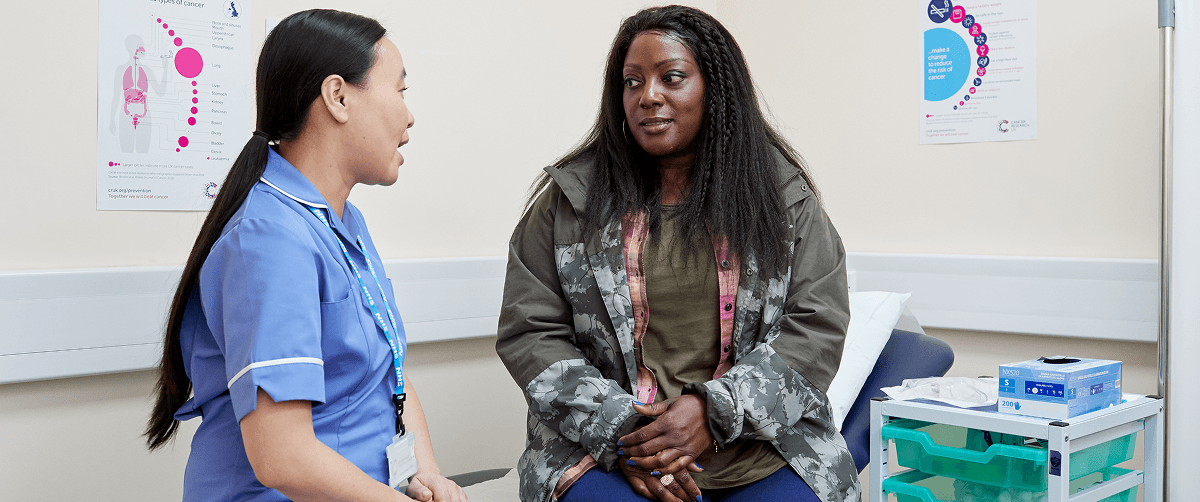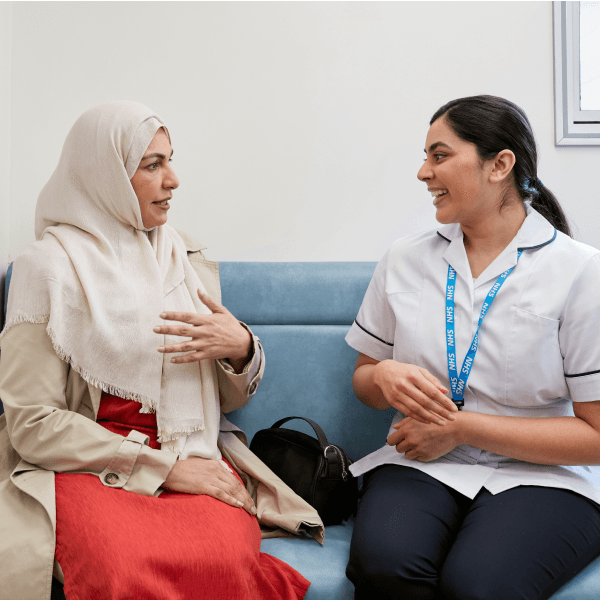
At the start of the COVID-19 outbreak in 2020, people across the UK had their life-saving cancer tests and treatments cancelled or delayed.
It’s estimated that 38,000 fewer people received vital surgery, chemotherapy, and radiotherapy and a third of patients surveyed in July 2020 told us that COVID-19 had impacted their cancer treatment.
This disruption was partially due to there not being enough safe spaces in hospitals, with steps to protect patients from COVID-19 exposure, for cancer services to continue.
The cancellations and disruption left many cancer patients feeling frustrated, angry and upset.
It was the UK and devolved governments’ responsibility to keep cancer services operating safely during this time. In May 2020, supporters told us that COVID-protected spaces and testing should be a priority, so we launched the urgent campaign: ‘Safe Spaces for Cancer Services’.
Nearly 4,000 campaigners acted to secure safe spaces for cancer services by writing to politicians resulting in support for the campaign across by asking them to submit questions to their political leaders, speak in debates and Committee sessions on behalf of Cancer Research UK and write to their respective governments.
In December 2020, NHS England published the NHS Cancer Services Recovery Plan – which committed to tackling long waits for diagnosis and treatment that had grown during the pandemic, maintaining and expanding COVID-protected cancer services, and encouraging people with cancer symptoms to come forward.

In 2018, we launched our Shoulder to Shoulder Against Cancer campaign in the NHS’s 70th birthday year to ask the UK Government to train and employ more staff to diagnose and treat cancer early.
The impact was felt right across the cancer pathway, with over 3 million people across the UK not able to go for cancer screening and thousands fewer people referred for tests for suspected cancer compared to normal.
Over 2 million people in the UK were left waiting for cancer screening, tests and treatments in the first 10 weeks of lockdown.
Almost a third of cancer patients reported receiving worse care, according to a survey commissioned by Cancer Research UK.
Learn about the ways our campaigner community is driving political action to help beat cancer.
Join our community of over 50,000 online campaigners across the UK.
Take part in our community of over 200 volunteer Campaign Ambassadors helping to influence governments across the UK to take action on cancer and driving improvements for cancer in their local communities.